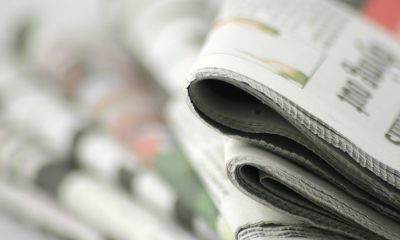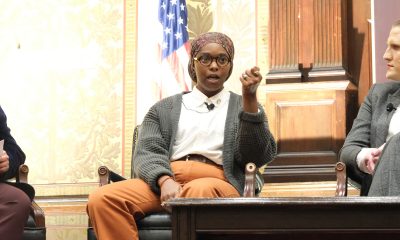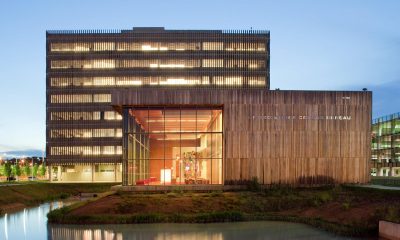Books
Author’s life a winding path of queerness, art, pride and disability lineage
Fink explores familial exclusion in new book
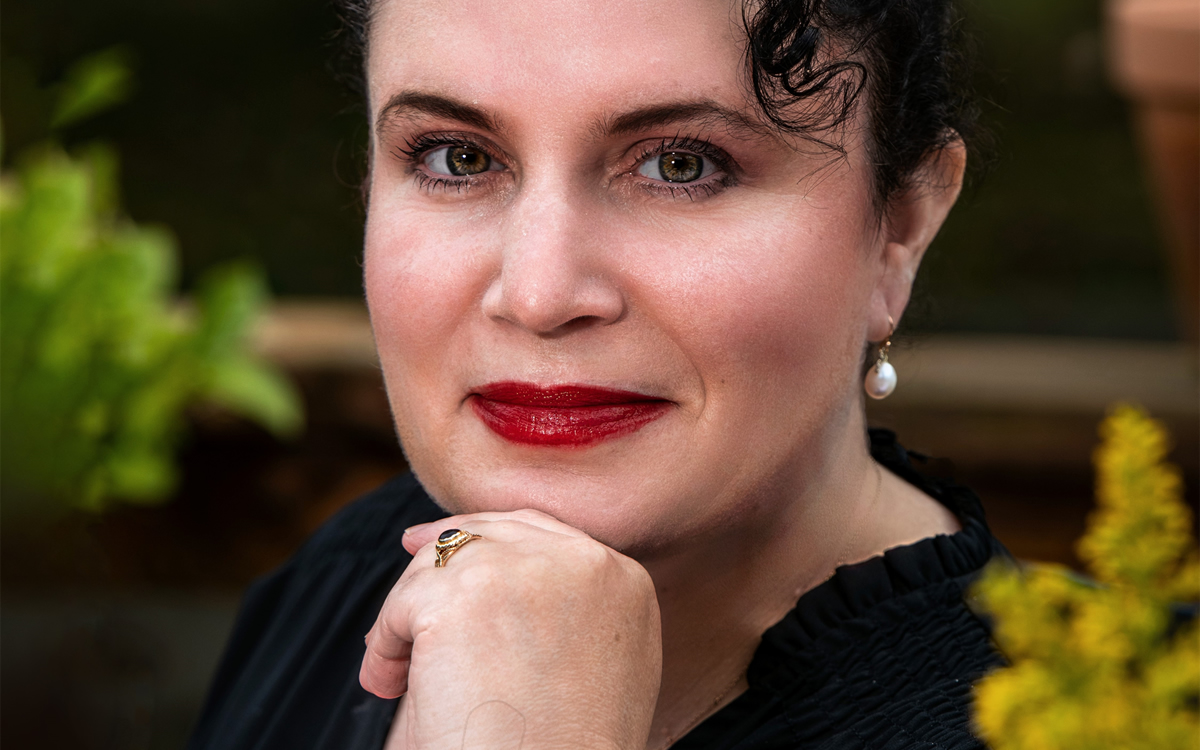
When Jennifer Natalya Fink, 55, an English professor and director of the Disabilities Studies program at Georgetown University, was growing up, her grandfather’s house overflowed with his extended family – from aunts to second cousins.
“Though my gruff grandfather argued with everyone,” Fink, who is queer and Jewish, writes in her new book “All Our Families: Disability Lineage and the Future of Kinship,” “his household included far-flung family members in his ever-expanding mishpacha–Yiddish for family, extended family, and that aunt who’s really just your mother’s best friend.”
Yet one family member wasn’t welcome there, Fink, who is married to a Korean-American, gender nonconforming spouse, told the Blade in an interview. She never saw her first cousin, Cousin XY, (her grandfather’s grandson) at family gatherings.
As a child, Fink knew that she had a cousin who no one mentioned. A geneticist’s daughter, she named her “lost” cousin “Cousin XY.”
“My grandfather had an expanded idea of family,” Fink said, “But Cousin XY had Down syndrome.”
Fink’s grandfather was a doctor. His mishpacha included vulnerable people who were unable to provide for themselves. But “there wasn’t room for someone with an extra chromosome,” Fink said, “he said my aunt and uncle should ‘give away’ their child with Down Syndrome.”
There was so much shame around disability when Cousin XY was born, Fink said. “It was like how it was for me growing up queer in the 1970s and 1980s,” she said. “No one talked about it then. The stories of queer people were erased.”
Her grandfather’s vision of family had “one limit,” Fink said. “It didn’t include disability.”
After he was born, Cousin XY was taken from his parents. At first, a nurse cared for him. Then, he was institutionalized.
“Cousin XY’s story was erased,” Fink said. “He wasn’t even given a name.”
The 1970s was the “tail end” of the mass institutionalization of disabled people, Fink said.
Institutionalization of people with disabilities is much less common now. “Yet disabled people are still often being culturally and psychologically delineated from our idea of family,” Fink said.
Nearly one in five people has a disability, according to the U.S. Census Bureau. So, it’s not surprising that Fink’s family (like many families) has had more than one disabled person in its history.
Fink’s grandmother Adina was extremely hard of hearing. “Yet, we never talked about her deafness,” Fink said. “She took no pride in her disability.”
Just as, until recently, many families erased the stories of their LGBTQ mother, fathers, husbands, wives, children, grandmas, grandpas – “guncles,” families still erase disabled people from their family history.
Fink, born in Washington, D.C., grew up in Ithaca, N.Y. “Growing up, I felt like I was the only queer person in the universe,” Fink said, “being queer wasn’t considered to be ‘normal.’”
Many families have at least one family member who is LGBTQ. Fink’s parents were loving and liberal. But, when she was young, “it was as if there had never ever been a queer person in my family,” Fink said. “It felt like being cut off from my family’s story.”
Now, Fink’s parents are supportive of her sexual orientation.
In this era of LGBTQ pride, being queer is more often seen not as “abnormal” or “traumatic” but as a “normal” part of being human.
This hasn’t been the case for disabled people, Fink said.
The stigma and shame around disability became up close and personal for Fink when her daughter Nadia Sohn Fink, now 15, was two-and-a-half-years old.
Then, Fink learned that Nadia was autistic. Fink was gobsmacked.
Nadia, who is biracial, was an intelligent, playful child. Now Nadia is a bright teen who writes stories and poetry.
“It felt traumatic to get this paper saying Nadia is autistic,” Fink said, “as if we were being cut off from what is normal.”
Fink, who isn’t disabled, had internalized society’s perceptions of disability. She’d imbibed the ableist Kool Aid: the idea that disability is shameful – that disabled people should be feared, patronized and/or shunned.
To deal with her daughter’s autism diagnosis, Fink leaned into her experience of being queer.
“Because I’m queer, I’m used to being an outsider,” she said, “I drew on what I know of homophobia. On what it’s like to be excluded – to be considered abnormal – not a part of the family.”
Fink is an introvert. “If I weren’t queer, I’d never have gone into a bar,” she joked.
But connecting with other LGBTQ people had made her feel pride in herself. Her queer connection made her feel part of a chosen family and think about her family of origin’s stories.
She and Nadia connected with other autistic people and their families. Fink came to think of being disabled not as something to be ashamed of, but as a normal part of being human.
Fink began to look into her family’s disability history. She found that Rhona (now deceased), another cousin in the United Kingdom, had Down Syndrome. Rhona, Fink discovered, led a happy, fulfilled life.
“Rhona lived with her family through her childhood,” Fink said, “her mother started a progressive care center where Rhona lived the rest of her life.”
There’s a parallel between families being out and proud about their queer and disability history, Fink said.
“Reclaiming your family’s disability stories will change how you think about disability,” Fink said.
Take her hard-of-hearing grandmother. Fink now looks on her grandmother’s disability with pride. “She didn’t transcend her disability,” Fink said, “but because she was hard-of-hearing, my grandmother had to pay attention. She was a great listener.”
Fink’s daughter Nadia feels pride in her disabled ancestors. “Disability lineage empowers me,” Nadia emailed the Blade, “To know my people were always there. To know I have a people.”
Creativity runs in the Fink family. Like her daughter, Fink is a writer. She was the winner of the Dana Award for the novel and of the Catherine Doctorow Prize for Fiction.
“I write experimental fiction,” said Fink who was a Lambda Literary Award finalist for her 2018 novel “Bhopal Dance.”
“Bhopal Dance” “focuses on disaster, activism, white savior complex, and queer world making,” Corinne Manning wrote in the “Lambda Literary Review. “The book is an astonishing sun-posed magnifying glass on our radical failures and desires.”
In 1988, Fink graduated from Wesleyan University with a bachelor’s degree in a self-designed major in feminist performance art. She earned an M.F.A. in performance from the Art Institute of Chicago in 1990 and a Ph.D. in performance studies from New York University in 1997.
For a time, Fink was based in New York City, where she supervised art teachers in public schools. She noticed that often there were no books, and that the students were frequently alienated from books.
But “the kids loved to draw, paint, cartoon, etc.,” Fink said, “I learn best through making. So did these kids.”
To promote youth literacy, Fink was one of the founders of the (now defunct) Gorilla Press.
Fink’s life has been a winding path of queerness, art, pride and disability lineage. She wears her grandmother’s ring to honor her disability ancestors.
You can’t help but think that her grandmother would be proud.
Books
New book offers observations on race, beauty, love
‘How to Live Free in a Dangerous World’ is a journey of discovery
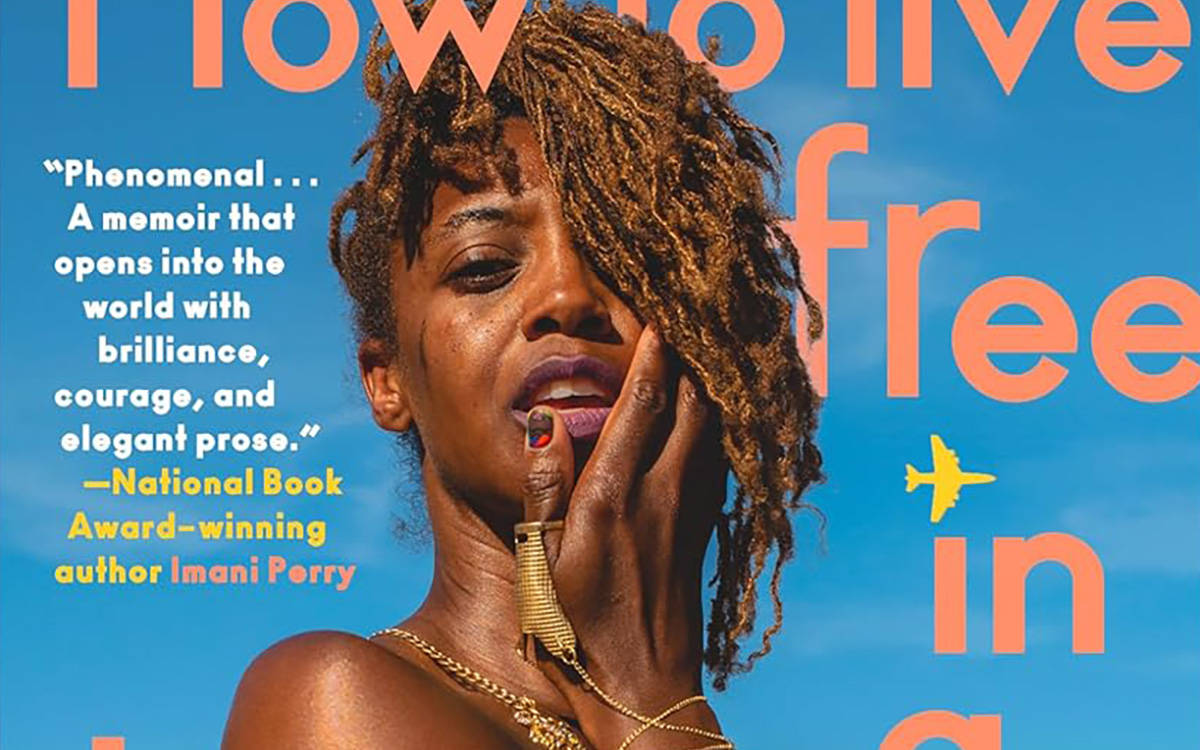
‘How to Live Free in a Dangerous World: A Decolonial Memoir’
By Shayla Lawson
c.2024, Tiny Reparations Books
$29/320 pages
Do you really need three pairs of shoes?
The answer is probably yes: you can’t dance in hikers, you can’t shop in stilettos, you can’t hike in clogs. So what else do you overpack on this long-awaited trip? Extra shorts, extra tees, you can’t have enough things to wear. And in the new book “How to Live Free in a Dangerous World” by Shayla Lawson, you’ll need to bring your curiosity.

Minneapolis has always been one of their favorite cities, perhaps because Shayla Lawson was at one of Prince’s first concerts. They weren’t born yet; they were there in their mother’s womb and it was the first of many concerts.
In all their travels, Lawson has noticed that “being a Black American” has its benefits. People in other countries seem to hold Black Americans in higher esteem than do people in America. Still, there’s racism – for instance, their husband’s family celebrates Christmas in blackface.
Yes, Lawson was married to a Dutch man they met in Harlem. “Not Haarlem,” Lawson is quick to point out, and after the wedding, they became a housewife, learned the language of their husband, and fell in love with his grandmother. Alas, he cheated on them and the marriage didn’t last. He gave them a dog, which loved them more than the man ever did.
They’ve been to Spain, and saw a tagline in which a dark-skinned Earth Mother was created. Said Lawson, “I find it ironic, to be ordained a deity when it’s been a … journey to be treated like a person.”
They’ve fallen in love with “middle-American drag: it’s the glitteriest because our mothers are the prettiest.” They changed their pronouns after a struggle “to define my identity,” pointing out that in many languages, pronouns are “genderless.” They looked upon Frida Kahlo in Mexico, and thought about their own disability. And they wish you a good trip, wherever you’re going.
“No matter where you are,” says Lawson, “may you always be certain who you are. And when you are, get everything you deserve.”
Crack open the front cover of “How to Live Free in a Dangerous World” and you might wonder what the heck you just got yourself into. The first chapter is artsy, painted with watercolors, and difficult to peg. Stick around, though. It gets better.
Past that opening, author Shayna Lawson takes readers on a not-so-little trip, both world-wide and with observant eyes – although it seems, at times, that the former is secondary to that which Lawson sees. Readers won’t mind that so much; the observations on race, beauty, love, the attitudes of others toward America, and finding one’s best life are really what takes the wheel in this memoir anyhow. Reading this book, therefore, is not so much a vacation as it is a journey of discovery and joy.
Just be willing to keep reading, that’s all you need to know to get the most out of this book. Stick around and “How to Live Free in a Dangerous World” is what to pack.
The Blade may receive commissions from qualifying purchases made via this post.
Books
Story of paralysis and survival features queer characters
‘Unswerving: A Novel’ opens your eyes and makes you think
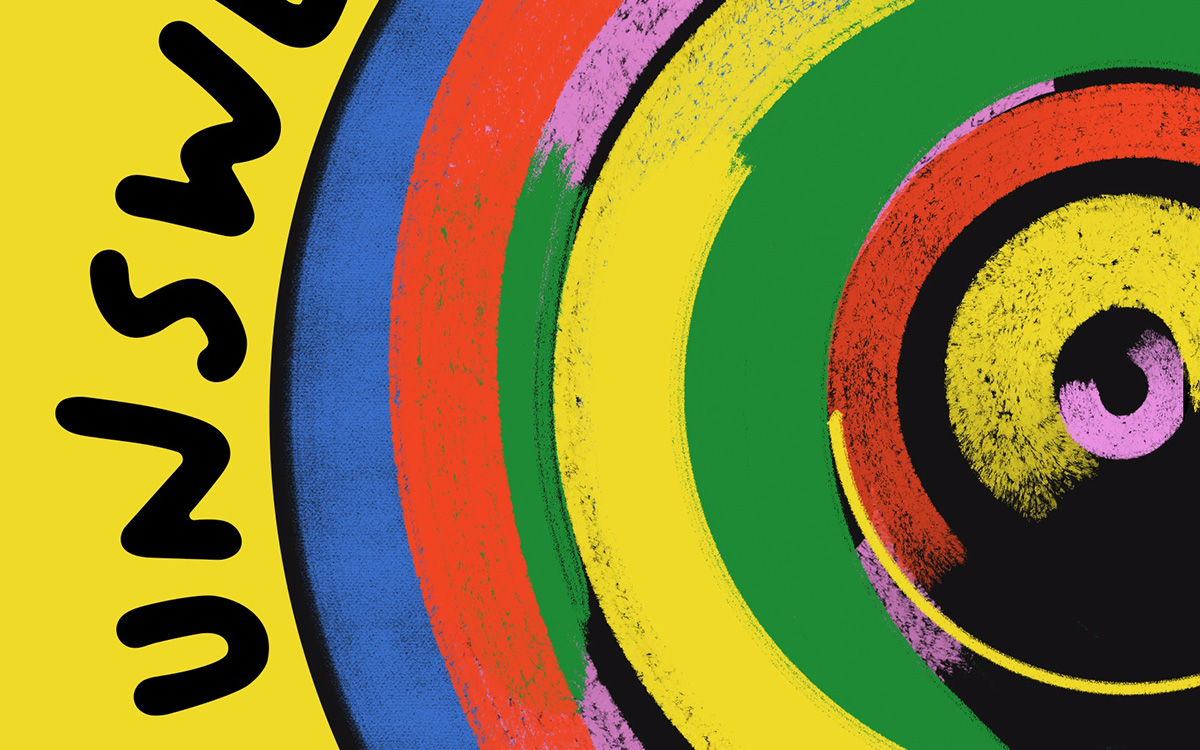
‘Unswerving: A Novel’
By Barbara Ridley
c.2024, University of Wisconsin Press
$19.95 / 227 pages
It happened in a heartbeat.
A split-second, a half a breath, that’s all it took. It was so quick, so sharp-edged that you can almost draw a line between before and after, between then and now. Will anything ever be the same again? Perhaps, but maybe not. As in the new book “Unswerving” by Barbara Ridley, things change, and so might you.

She could remember lines, hypnotizing yellow ones spaced on a road, and her partner, Les, asleep in the seat beside her. It was all so hazy. Everything Tave Greenwich could recall before she woke up in a hospital bed felt like a dream.
It was as though she’d lost a month of her life.
“Life,” if you even wanted to call it that, which she didn’t. Tave’s hands resembled claws bent at the wrist. Before the accident, she was a talented softball catcher but now she could barely get her arms to raise above her shoulders. She could hear her stomach gurgle, but she couldn’t feel it. Paralyzed from the chest down, Tave had to have help with even the most basic care.
She was told that she could learn some skills again, if she worked hard. She was told that she’d leave rehab some day soon. What nobody told her was how Les, Leslie, her partner, girlfriend, love, was doing after the accident.
Physical therapist Beth Farringdon was reminded time and again not to get over-involved with her patients, but she saw something in Tave that she couldn’t ignore. Beth was on the board of directors of a group that sponsored sporting events for disabled athletes; she knew people who could serve as role models for Tave, and she knew that all this could ease Tave’s adjustment into her new life. It was probably not entirely in her job description, but Beth couldn’t stop thinking of ways to help Tave who, at 23, was practically a baby.
She could, for instance, take Tave on outings or help find Les – even though it made Beth’s own girlfriend, Katy, jealous.
So, here’s a little something to know before you start reading “Unswerving”: author Barbara Ridley is a former nurse-practitioner who used to care for patients with spinal cord injuries. That should give readers a comfortable sense of satisfaction, knowing that her experiences give this novel an authenticity that feels right and rings true, no faking.
But that’s not the only appeal of this book: while there are a few minor things that might have readers shaking their heads (HIPAA, anyone?), Ridley’s characters are mostly lifelike and mostly likable. Even the nasties are well done and the mysterious character that’s there-not-there boosts the appeal. Put everyone together, twist a little bit to the left, give them some plotlines that can’t ruined by early guessing, and you’ve got a quick-read novel that you can enjoy and feel good about sharing.
And share you will because this is a book that may also open a few eyes and make readers think. Start “Unswerving” and you’ll (heart) it.
The Blade may receive commissions from qualifying purchases made via this post.
Books
Examining importance of queer places in history of arts and culture
‘Nothing Ever Just Disappears’ shines with grace and lyrical prose
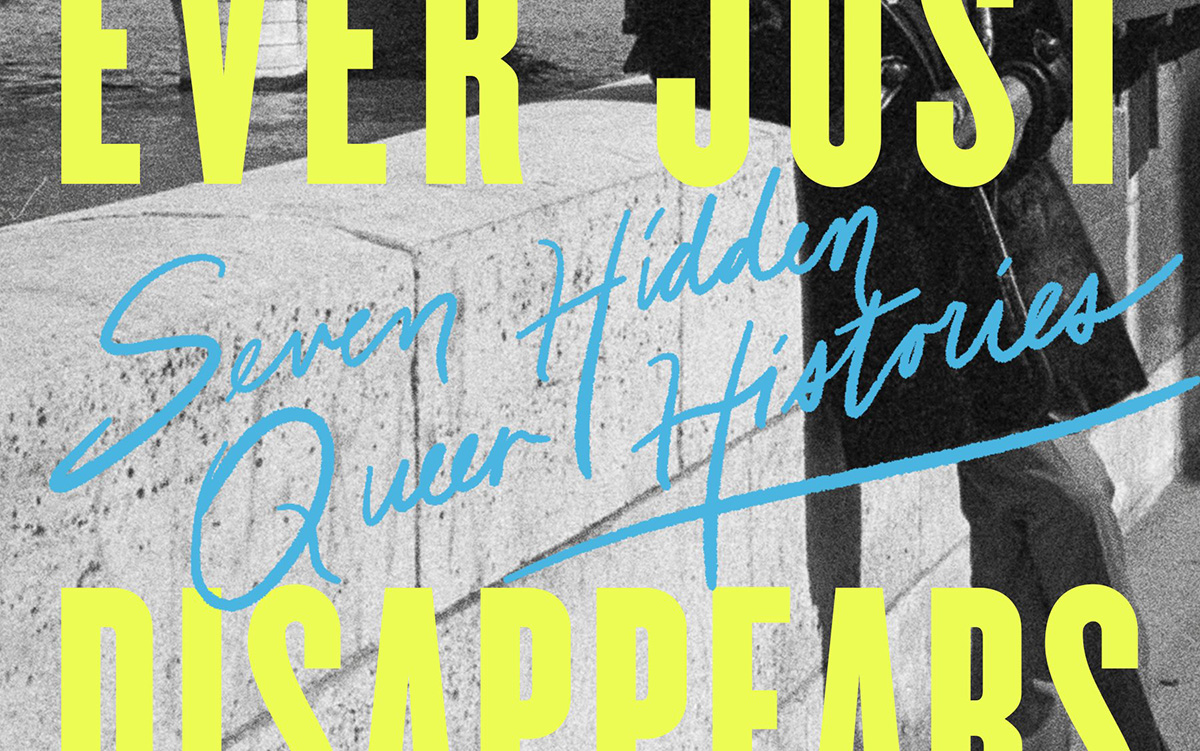
‘Nothing Ever Just Disappears: Seven Hidden Queer Histories’
By Diarmuid Hester
c.2024, Pegasus Books
$29.95/358 pages
Go to your spot.
Where that is comes to mind immediately: a palatial home with soaring windows, or a humble cabin in a glen, a ramshackle treehouse, a window seat, a coffeehouse table, or just a bed with a special blanket. It’s the place where your mind unspools and creativity surges, where you relax, process, and think. It’s the spot where, as in the new book “Nothing Ever Just Disappears” by Diarmuid Hester, you belong.

Clinging “to a spit of land on the south-east coast of England” is Prospect Cottage, where artist and filmmaker Derek Jarman lived until he died of AIDS in 1994. It’s a simple four-room place, but it was important to him. Not long ago, Hester visited Prospect Cottage to “examine the importance of queer places in the history of arts and culture.”
So many “queer spaces” are disappearing. Still, we can talk about those that aren’t.
In his classic book, “Maurice,” writer E.M. Forster imagined the lives of two men who loved one another but could never be together, and their romantic meeting near a second-floor window. The novel, when finished, “proved too radical even for Forster himself.” He didn’t “allow” its publication until after he was dead.
“Patriarchal power,” says Hester, largely controlled who was able to occupy certain spots in London at the turn of the last century. Still, “queer suffragettes” there managed to leave their mark: women like Vera Holme, chauffeur to suffragette leader Emmeline Pankhurst; writer Virginia Woolf; newspaperwoman Edith Craig, and others who “made enormous contributions to the cause.”
Josephine Baker grew up in poverty, learning to dance to keep warm, but she had Paris, the city that “made her into a star.” Artist and “transgender icon” Claude Cahun loved Jersey, the place where she worked to “show just how much gender is masquerade.” Writer James Baldwin felt most at home in a small town in France. B-filmmaker Jack Smith embraced New York – and vice versa. And on a personal journey, Hester mourns his friend, artist Kevin Killian, who lived and died in his beloved San Francisco.
Juxtaposing place and person, “Nothing Ever Just Disappears” features an interesting way of presenting the idea that both are intertwined deeper than it may seem at first glance. The point is made with grace and lyrical prose, in a storyteller’s manner that offers back story and history as author Diarmuid Hester bemoans the loss of “queer spaces.” This is really a lovely, meaningful book – though readers may argue the points made as they pass through the places included here. Landscapes change with history all the time; don’t modern “queer spaces” count?
That’s a fair question to ask, one that could bring these “hidden” histories full-circle: We often preserve important monuments from history. In memorializing the actions of the queer artists who’ve worked for the future, the places that inspired them are worth enshrining, too.
Reading this book may be the most relaxing, soothing thing you’ll do this month. Try “Nothing Ever Just Disappears” because it really hits the spot.
The Blade may receive commissions from qualifying purchases made via this post.
-

 District of Columbia2 days ago
District of Columbia2 days agoReenactment of first gay rights picket at White House draws interest of tourists
-

 District of Columbia2 days ago
District of Columbia2 days agoNew D.C. LGBTQ+ bar Crush set to open April 19
-

 Arizona2 days ago
Arizona2 days agoAriz. governor vetoes anti-transgender, Ten Commandments bill
-

 Africa4 days ago
Africa4 days agoUgandan activists appeal ruling that upheld Anti-Homosexuality Act

